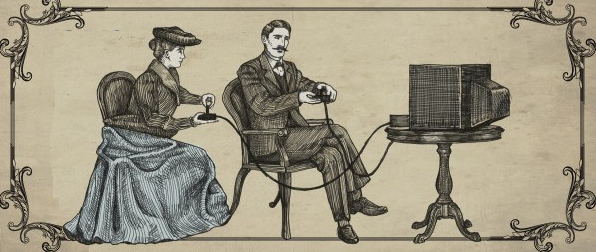Do not pass go, do not collect 200 dollars
The way consumers act you’d think the big publishers of the video gaming world have landed on Mayfair and Park Lane and stacked them high with as many hotels as the properties would allow, that they’ve landed on them, and they’ve had to mortgage their rubbish buildingless Old Kent Road to pay the rent. The way consumers act you’d think that the games industry is one enormous monopoly board ready to eat their pay cheque the moment they pass go.
And it’s absolute rubbish.
Coming off a year that the internet sensationally decried as one of the worst the industry has seen, it’s pretty hard to see through the facade that is put up by the press and the players, one that paints the big developers and publishers as sharp-toothed monopolists seek super profits by taking advantage of their market position. Video games are analysed like they are a utility, where in absence of regulatory intervention consumption is relatively price inelastic, and where marginal cost is equal to marginal revenue. In this world consumers are price takers, forced to pay for the monopoly rent-seeking behaviour of the firm, unable to significantly adjust their consumption in response to high prices.
This doesn’t include consumers that are simply unwilling to adjust their consumption.
The same economic rationale applies to post launch, where consumers pan monetisation plans that they consider unfair or unjust, but consume it anyway. The logic more often than not being that . I’m a firm believer that economics can help inform game design, and given that, am of the view that the relationship between the player and the game is a pseudo market where time is the currency and gameplay the good and in some cases service. In that context, when people talk about playing games for longer than they can justify, it is a clear market failure based on irrational consumer behaviour.
And the press don’t help the situation, acting as a pseudo-regulator, taking to arms against what they consider the exertion of market power. It’s not unusual for the media to take stands against pre-orders, calling for price reductions, for longer games, even boycotts for games they consider don’t fulfill an implied consumer contract – the press are the regulator and the prosecutor.
You see we live in a world where playing games, games that are unbroken and fulfill our own pent up expectations, is considered a right. And when it all goes wrong we take to the internet and express our disgust when things go wrong, never taking responsibility to be an informed consumer, instead shifting all the blame to the evil empires that reached into our bank accounts and extorted our money.
The evil empires that are all experiencing incredibly tight margins and significant competition from other evil empires. Not much of a monopoly really, is it?
So next time you’re about to post on a forum to complain about how disappointed you are with Destiny – the game you just spent 300 hours with and bought all the post-launch content for – think twice before looking the fool.
In short – don’t be that guy.

